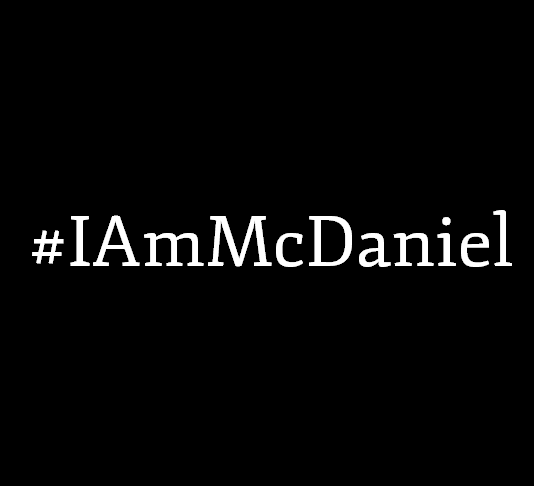Dear McDaniel Students, Faculty, and Staff,
The Animal Welfare Club has recently planned Meatless Monday with the dining hall. The first night took place on November 5th. It has come to our attention that this initiative is at the forefront of campus talk and has been incredibly controversial.
Many students have voiced their opinions to dining hall staff, the Free Press staff, and to other groups around campus. The opinions of many people have been heard, but not from AWC. The reasoning behind installing Meatless Monday has not been expressed, and for that we apologize.
It is not useful to put something into action without giving the motives behind it. It is with this article that we hope to show you why we are so adamant about Meatless Monday. As activists both for human and animal rights, our members didn’t realize that many people would be against giving up one meat-centered meal a week.
It is clear that many are unaware of the major environmental, health, and moral implications of supporting the meat industry. The Animal Welfare club’s main goal, by installing Meatless Monday, was to encourage the school to consume less meat in order to be more sustainable for the world.
We joined with the international Meatless Monday movement so that we could help to drive down the demand for meat, meaning that less resources would be used and that animal agriculture agencies would see a need for more humane and environmentally-friendly processes.
Those of us in the AWC feel that if everyone knew the facts, they would not care about the lack of one commodity at one meal during the week. The main motive behind installing Meatless Monday was to help restore the environment.
So what are the facts?
The sad truth is that the animal agriculture industry destroys our planet. As the environmentalist movement grows more and more popular each year, people are searching for more sustainable ways to lead their lives, but they tend to not consider one of the largest causes of the problem — factory farms.
These are large livestock facilities which cram animals, including cows, chickens, and pigs, into small living spaces. It is factory farms, not quaint farms seen in the media, that house the majority of America’s animals. Factory farms are the consumers of almost half of the United States’ water supply (it takes 12,000 gallons of water to produce one pound of meat), while 3/4 of the world’s agricultural land is devoted to livestock production.
Agricultural land, used for crops in the purpose of feeding humans (vegetables, grains), produces much more food than land used for livestock. In addition, almost 90% of deforestation is used towards the creation of space for livestock. This is cause for the utmost concern.
We are also the fattest country in the world. This directly correlates with the fact that we are the largest meat consumers and producers in the world. It has also been proven in numerous studies that the consumption of meat and dairy products increases one’s risks for multitudes of diseases including various cancers, heart disease, and diabetes (http://nutritionfacts.org/topics/meat/). By cutting down on meat, we can increase the country’s health, which is a positive for both individuals and for healthcare.
The outrage of the absence of meat from just one meal a week illustrates the fact that we as a culture are dependent upon animal products — not for health reasons, but for tradition and pleasure. But when you understand how bad it is for the environment and for your health, we hope that some people will start to reevaluate their eating choices.
While the decision is still up in the air as to whether it will be a long-running movement at McDaniel, we still stand firm that it is the right thing to do. The AWC hopes to make McDaniel greener by cutting down on our meat consumption through Meatless Monday while raising awareness about the issue.
If the dining hall just decided to slowly cut back on using as much meat, it would not have produced such an interest into questioning the ideals and values behind what we eat. With this interest, we hope that you read more about the issue and that you refrain from consuming animal products as much as you can. If you’d like to learn more about the environmental and health impacts from the animal agriculture industry, please check out these links:
http://www.ncifap.org/_images/212-4_EnvImpact_tc_Final.pdf (a study of the environmental impact on animal agriculture) and http://www.nutritionfacts.org (an excellent resource for the negative effects of eating meat)
-The members of The Animal Welfare Club of McDaniel College





